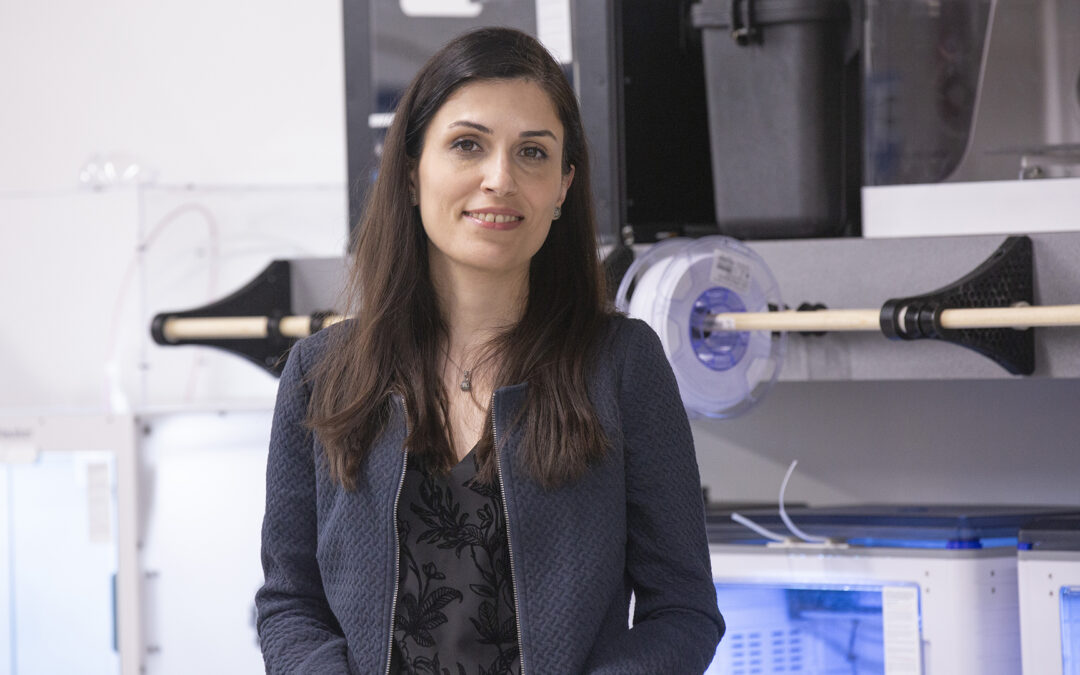A warm hug. A friendly handshake. The bump of a stranger’s elbow.
As newborns, touch is the first sense we engage with and, some would argue, it remains the most important throughout our lives. But in a world where people increasingly interact with each other via screens and devices, it’s easy to lose touch with our sense of touch.
“When we use digital technologies, we miss the physical feedback that we get in the real world,” says Hasti Seifi, an assistant professor of computer science and engineering in the School of Computing and Augmented Intelligence, part of the Ira A. Fulton Schools of Engineering at ASU.
Seifi’s work in the field of haptic technology, or haptics, has earned her a CAREER Award from the National Science Foundation, or NSF. The award provides a five-year grant to support early-career faculty in their promising research pursuits.
Haptics refers to a family of programmable touch technologies that enable devices to provide feedback to our bodies and skin through mechanisms such as vibrations, force and friction. Most people are familiar with touch screens such as those on phones and electronic tablets, as well as vibrations from video-game controllers, but Seifi’s proposed research seeks to help expand and broaden haptic use.
Get the full story on FULL CIRCLE.
